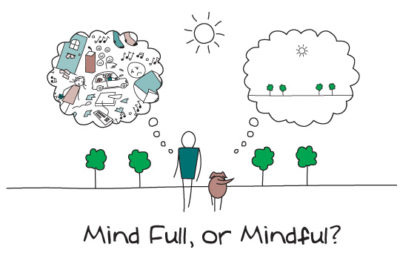Two side-holes, plus one cakehole
In our broadcasting world, where everyone has a mic, a lens, a channel and a loaded colander dripping opinion-seasoned blurt juice all over the floor, the opportunity to listen has never loomed larger. While most sit on the kerb and float their thoughts free on leaf boats down fast-flowing stormwater drains (most piling up in a dam of sticks and gravel before making it to the front of the next house), there’s so much room in the auditorium for those willing to shut their mouths and hypertune their ears.
Listening (imho) is perhaps the most natural thing those blessed with a functioning aural system can do, and it’s the most challenging discipline to hold to, well, for prolonged periods. The compulsion to share, to interject, to combine and correct and parry and have your say, builds to irresistible levels. The valve separating ears and mouth is binary, so to have a word means to close off to others. To hold in the quiet, considering, focused listening place awhile is a real, developed and practicable skill. I’d contend its relative scarcity makes it valuable and worth collecting.
Listening to what though? The loud of the shout? Anyones words at face value? Thoughts rolled out like this post?
Listening fodder has lots of angles, surfaces and textures I think worth a listeners’ consideration. Just some:
- The content of the comms. The what. A message or story or lesson or idea or fact. Something you can draw from, package and apply elsewhere, later. Sometimes it’s face value, but so often it’s got a depth we don’t always stare into.
- What they’re not saying. Armed with intelligence on a topic and given a platform to offer their 20c worth, what surprisingly remains unspoken? What are they leaving out, and why might that be?
- The bits being repeated. Words, phrases, questions, points of enunciation and proclamation. Things they’re wanting (consciously or otherwise) impressed upon and embedded into the minds of the crowd. Their staunch fallback points, the bits they’re surest about (I mean, they wouldn’t keep saying it if they weren’t confident about it, right?)
- Emphasis. What’s louder, pronounced slower and more precisely? Done with fist-punching gesticulation? Where are the pause points positioned, and why?
- Emotion. The phrases that trigger a scowl, or smile dimples, or watery eyes, or eyes wide and wild. Where in the message are they feeling it, for real, deep?
- Skimming. What’s been fast tracked across, quickly disappearing in the rear-view? Is that for brevity, or a lack of understanding about it, or because your imagined response frightens, or because it won’t pass muster on closer inspection?
- Getting lost in a moment. When a corneal glaze sets in and you can see they’ve left you, spirited away into the land of the content, forgetting who they’re with… what are you able to divine from that real-time window into another place?
- The references. Are they actively acknowledging and embracing you, dear listener, in their words? Are they claiming full ownership of what they’re saying, or are they paying homage to the ladder rungs and lift-givers underpinning their oration? And what does that mean, and say about them, and about the content?
- The binding words. Is everything being described in absolutes, definites, musts and digital vehemence? Or are some softer maybes, perhaps and more analogue possiblys tying the content together?
- The colour. Is it peppered with (attempted) humour, playful words, cultural apropos, scientifically academic terminology or floral phrasing? Or is it straight-down-the-line black-and-beige pointing and plating?
- The rhythm. Does it feel neatly constructed, rehearsed, delivered with a meandering melodic lilt for listening pleasure? Or is it jaggedly random, rapid-fire or staccato, needing you to buckle in and hold tight?
- Synch. While you’re challenging your ears to onboard and interpret fast, fully and accurately, check in with the other senses and see if there’s harmony with how the broadcaster is looking (or whether their visible affect is incongruent with the speech)
Listening, hard and well, takes mindfulness and energy we often reserve for the words we’re to deliver. And we have this nice audible autopilot setting, with a baseline of “if your ears work, just turn up and listening will happen while you sip coffee”. Which gets most of us through most of life just fine.
But if you want more from the moments, from the message makers, mixers and megaphone raisers? More for what it could do for you, for others, for the messages you might want to share later?
Just apply the ratio. Longer.
Troy Forrest runs Strategy Road and Forrest Workshops. An Adelaide-based strategic planning workshop facilitator, sales & leadership coach, Troy’s first order of business is to listen to clients like they’ve never been listened to before. The sole trophy on his parents mantelpiece, Mount Burr Football Club Junior Colts “Most attentive at training” 1987, was an early tipoff to where his professional road would lead.




